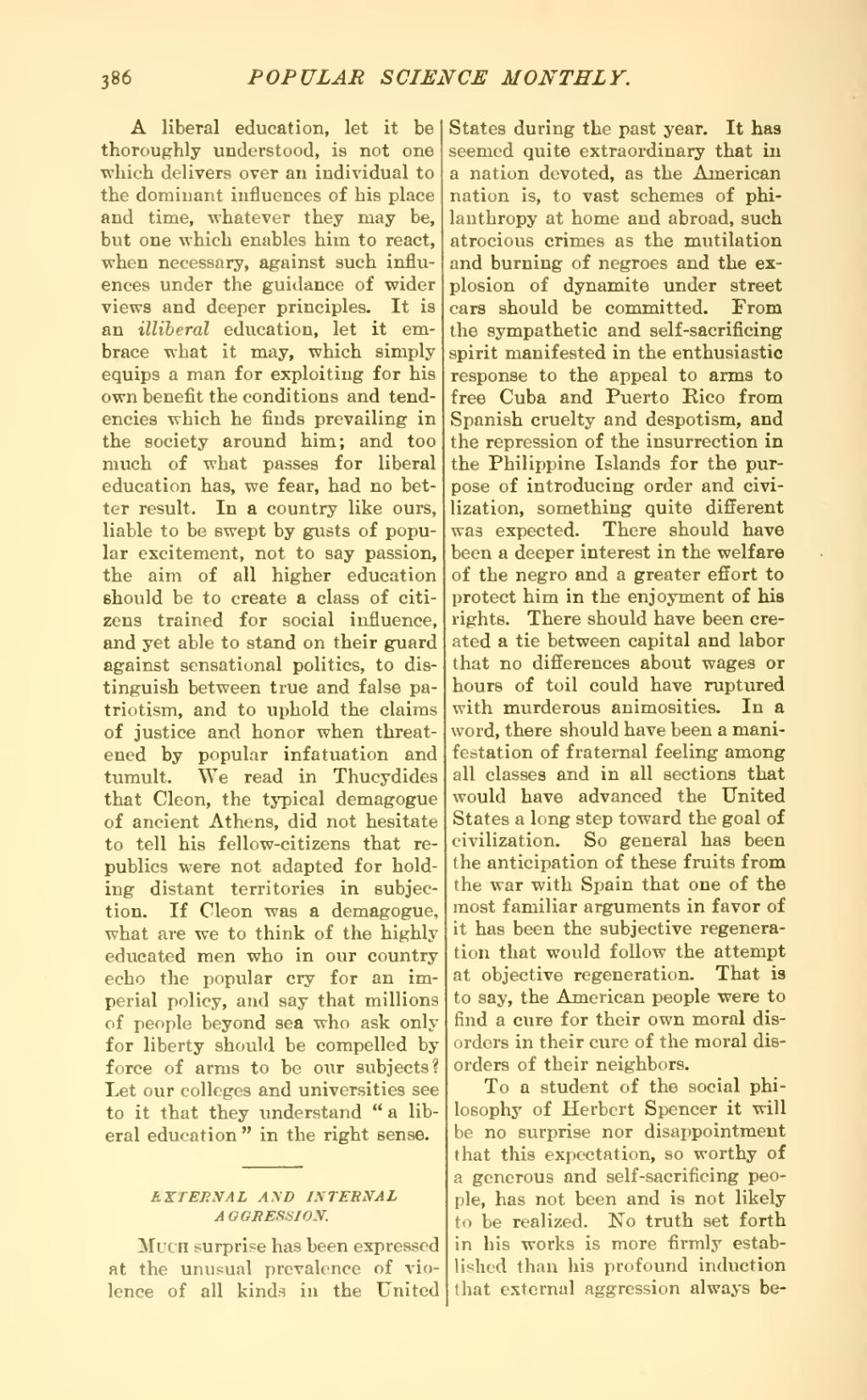A liberal education, let it be thoroughly understood, is not one which delivers over an individual to the dominant influences of his place and time, whatever they may be, but one which enables him to react, when necessary, against such influences under the guidance of wider views and deeper principles. It is an illiberal education, let it embrace what it may, which simply equips a man for exploiting for his own benefit the conditions and tendencies which he finds prevailing in the society around him; and too much of what passes for liberal education has, we fear, had no better result. In a country like ours, liable to be swept by gusts of popular excitement, not to say passion, the aim of all higher education should be to create a class of citizens trained for social influence, and yet able to stand on their guard against sensational politics, to distinguish between true and false patriotism, and to uphold the claims of justice and honor when threatened by popular infatuation and tumult. We read in Thucydides that Cleon, the typical demagogue of ancient Athens, did not hesitate to tell his fellow-citizens that republics were not adapted for holding distant territories in subjection. If Cleon was a demagogue, what are we to think of the highly educated men who in our country echo the popular cry for an imperial policy, and say that millions of people beyond sea who ask only for liberty should be compelled by force of arms to be our subjects? Let our colleges and universities see to it that they understand "a liberal education" in the right sense.
EXTERNAL AND INTERNAL AGGRESSION.
Much surprise has been expressed at the unusual prevalence of violence of all kinds in the United States during the past year. It has seemed quite extraordinary that in a nation devoted, as the American nation is, to vast schemes of philanthropy at home and abroad, such atrocious crimes as the mutilation and burning of negroes and the explosion of dynamite under street cars should be committed. From the sympathetic and self-sacrificing spirit manifested in the enthusiastic response to the appeal to arms to free Cuba and Puerto Rico from Spanish cruelty and despotism, and the repression of the insurrection in the Philippine Islands for the purpose of introducing order and civilization, something quite different was expected. There should have been a deeper interest in the welfare of the negro and a greater effort to protect him in the enjoyment of his rights. There should have been created a tie between capital and labor that no differences about wages or hours of toil could have ruptured with murderous animosities. In a word, there should have been a manifestation of fraternal feeling among all classes and in all sections that would have advanced the United States a long step toward the goal of civilization. So general has been the anticipation of these fruits from the war with Spain that one of the most familiar arguments in favor of it has been the subjective regeneration that would follow the attempt at objective regeneration. That is to say, the American people were to find a cure for their own moral disorders in their cure of the moral disorders of their neighbors.
To a student of the social philosophy of Herbert Spencer it will be no surprise nor disappointment that this expectation, so worthy of a generous and self-sacrificing people, has not been and is not likely to be realized. No truth set forth in his works is more firmly established than his profound induction that external aggression always be-
